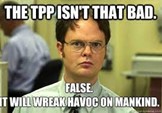Did someone spot a group of protestors down your street? If so, you had better start boarding up your windows if they are about to "wreak havoc" on the neighborhood.
This post unpacks this phrase's meaning, origin, and use in conversation.
Wreak Havoc Meaning
The meaning of the idiomatic phrase "wreak havoc" expresses the action of causing property damage, enacting a riot, or complete chaos in a situation. The word "wreak" means to "inflict" or “carry out actions” in a disturbing manner contrary to the social construct.
If someone or a group is "wreaking havoc," they are causing an undue amount of distress, destruction, and chaos.
Havoc has the definition of causing general destruction and widespread property damage. So, if you spot a group of protestors marching down a street, breaking storefront windows, and setting things on fire, they are wreaking havoc across the neighborhood.
The meaning of the phrase can also have a place when you're trying to describe a chaotic situation and impress on other people the attitude of other people around you. The phrase has a use in the real world and online.
For example, you could have the protestors tearing up your street, or you could have a team wreaking havoc in a video game such as "Grand Theft Auto V." Wreaking havoc is a serious offense in most cities, and your actions could wind up landing you in severe trouble with the authorities.
Wreak Havoc Example Usage
"Those protesters are going to wreak havoc when they arrive here. There are plenty of people looking to take advantage of the situation to cause chaos."
"The kids started to wreak havoc on the crowd as soon as they arrived. They were throwing bottles and screaming at people for no reason."
"The increasing inflation in the economy is going to wreak havoc in the commodities market, causing money to chase assets."


Wreak Havoc Origin
The word "wreak" was already used in the English language in speech and literature in the early 19th century. However, the emergence of the phrase "wreak havoc" comes from novelist Agatha Christie, using the term in one of her stories in 1926.
Before the use of the word "havoc" in the phrase, many people would use the term "wreaking ruin" or "wreaking destruction." However, neither of these phrases caught on with the mainstream culture.
Christie used the phrase in her book, "The Murder of Roger Ackroyd," which was a best-seller at the time and one of the most notable literary works of the era. The phrase remains popular in modern culture, and you probably hear it used all the time by your family and friends, and you'll hear it in media as well.
Phrases Similar to Wreak Havoc
- Causing mayhem
- Causing trouble
- Causing ruin
Phrases Opposite to Wreak Havoc
- Stay calm.
- No stress.
- Play it safe.
What is the Correct Saying?
- Wreak havoc.
- Wreaking havoc.
Ways People May Say Wreak Havoc Incorrectly
Some people may use the phrase as hyperbole to describe a situation or action that does not have severe consequences. If you "wreak havoc," you're causing a state of extreme distress around you. So, if you use the term to describe anything less than chaos, you're using the statement as a form of exaggerating the situation.
Acceptable Ways to Phrase Wreak Havoc
You can use the phrase "wreak havoc" when describing the actions or behavior of other people or inanimate objects. The term describes a chaotic situation with no sign of slowing down and no intervention from authorities or law enforcement. You can also use it when you're trying to explain a significant disruption.